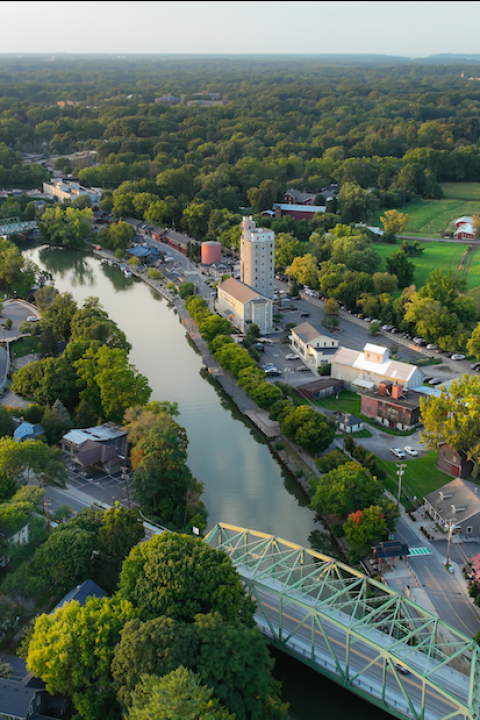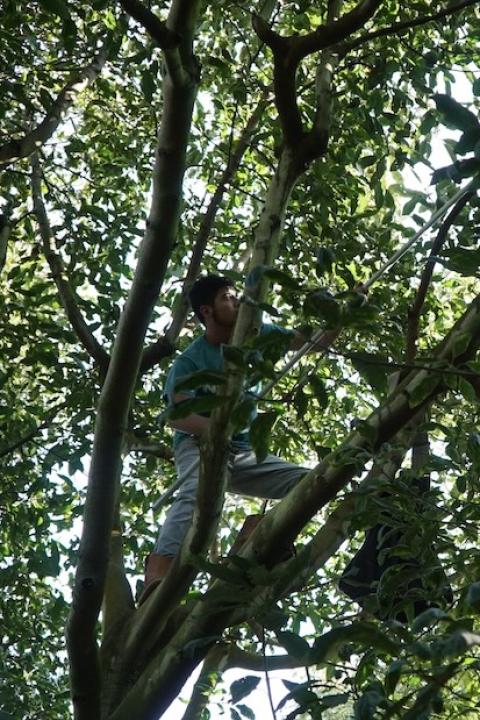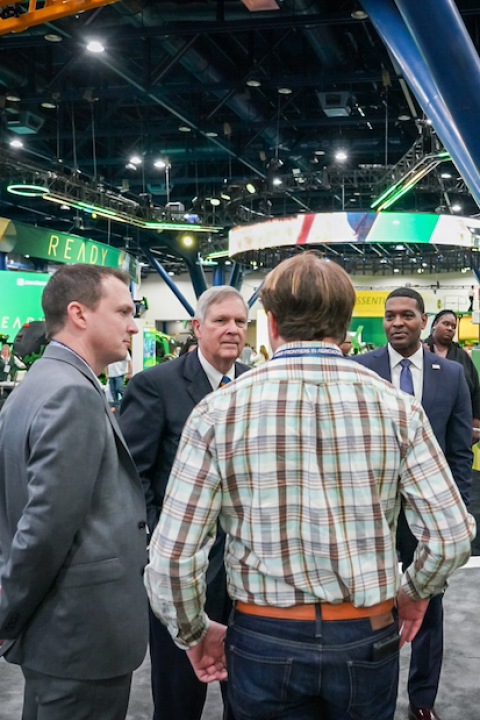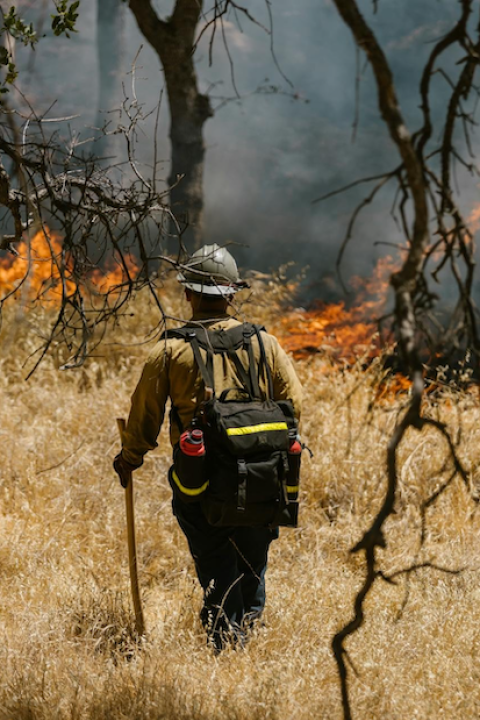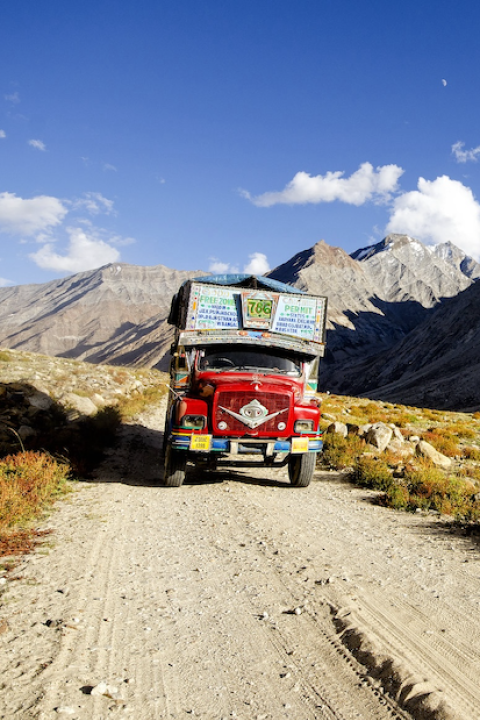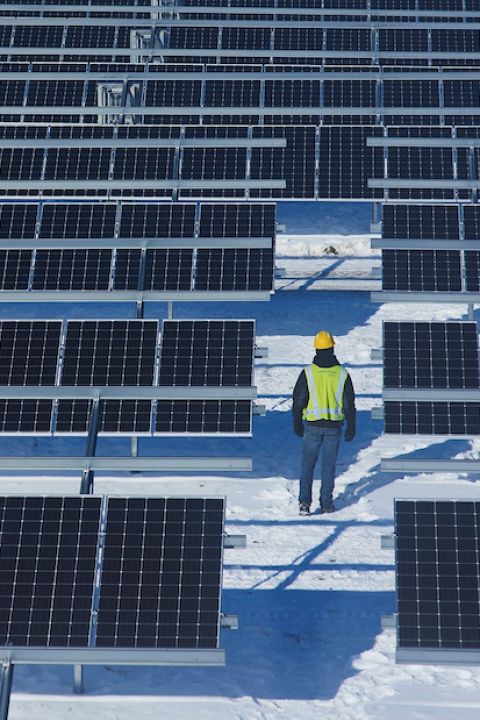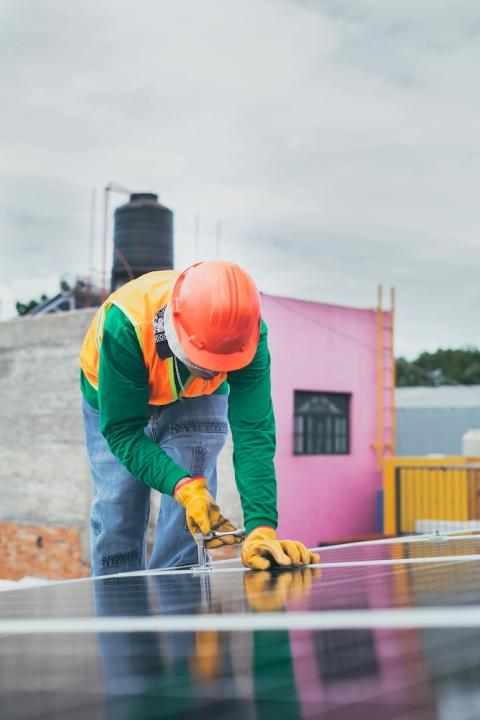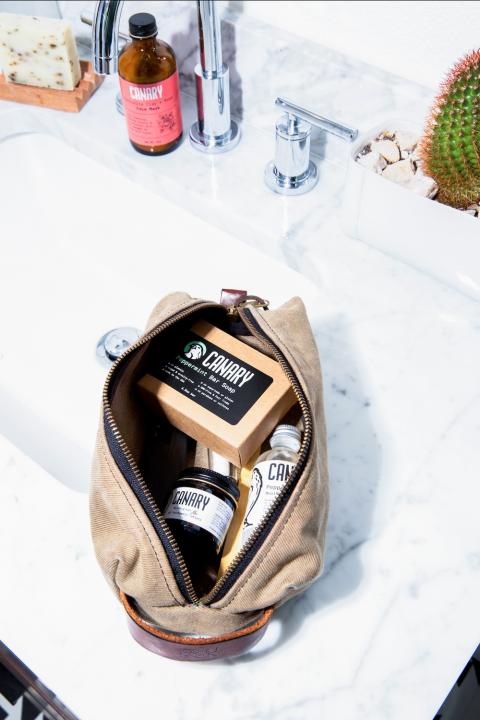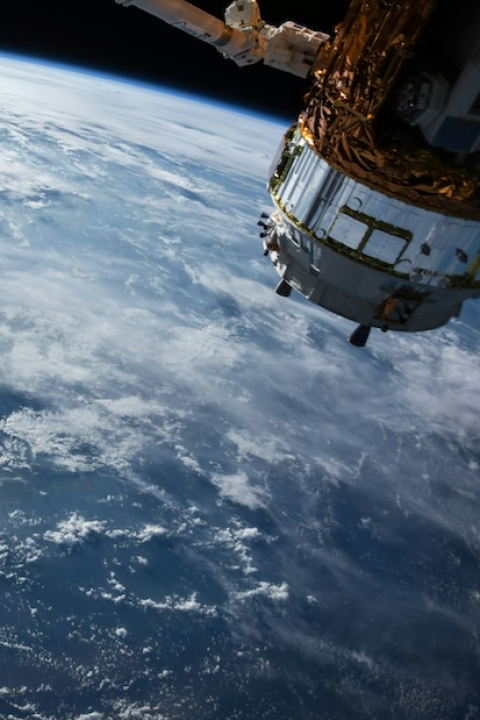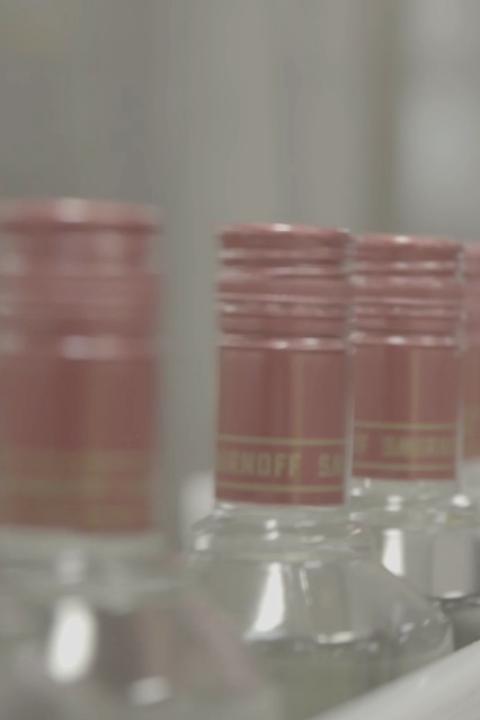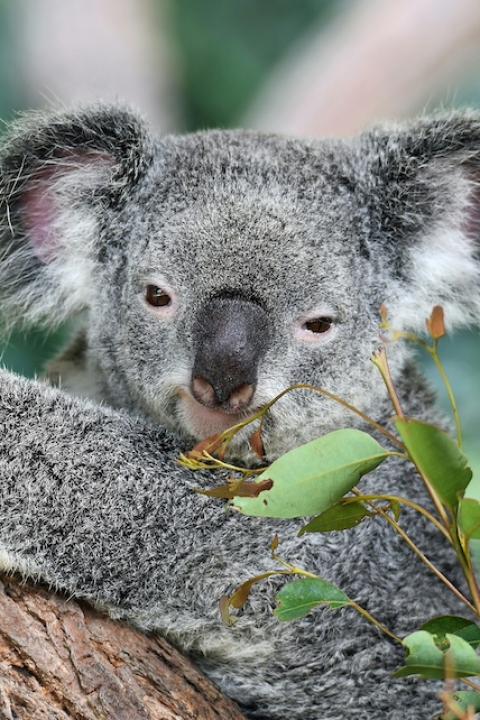Sungai Watch river warriors install one of the organization's trash barriers. The barrier will float on the water and collect the garbage flowing down the river before it can make its way to the ocean. (Image courtesy of Sungai Watch)
Kelly Bencheghib stands hip-deep in plastic in one of Bali’s most polluted rivers in the heart of Denpasar, the island’s capital city. While volunteer cleanup crews in the United States are picking up pieces of plastic deposited on their favorite beaches, in Indonesia, the plastic onslaught is a tsunami.
Indonesia is the fifth largest contributor of marine plastic to the ocean, according to a 2021 study published in the peer-reviewed journal Science Advances. The country's Ministry of Environment and Forestry says 59 percent of its 564 rivers are heavily polluted.
Bencheghib and her siblings, Gary and Sam, are attacking the issue alongside 120 ”river warriors” they employ to clean rivers and beaches in the province of Bali and beyond. Their environmental organization — Sungai Watch — sees people, not just technology, as the ultimate solution.
The goal: keep plastic from reaching the ocean and beaches by cleaning rivers.
Global interests, from the United Nations to the world’s largest corporations, are grappling with the changes needed to address the ocean plastic crisis. However, some of the best solutions are happening where the crisis hits home, run by people like the Bencheghib siblings.
They grew up in Bali, surfing, going to the beach, and seeing plastic pollution impact their home. “We thought it wasn’t normal and wanted to do something,” Kelly Bencheghib said. “As teenagers, we didn’t have any funds, but we had tons of energy.”
They started a youth-led organization called Make a Change Bali when Kelly was 16, Gary was 14 and Sam was 12. The group cleaned beaches every weekend and generated community interest to help. As they grew older, the three expanded the scope of the organization and renamed it Make a Change World.
“Our goal was just to get plastic pollution on front-page news by mixing expeditions and adventure with the topic,” Bencheghib said. They used film and social media to reach large audiences. In 2016, Gary and five friends navigated a raft down the Mississippi River while making an award-winning documentary called “Traveling on Trash.”
A year later, Gary and Sam made two plastic bottle rafts and floated down the plastic-polluted Citarum River in Indonesia. “That’s when we realized rivers are the connection point between life on land and life on the ocean,” Bencheghib said.
The Citarum expedition caught the attention of Indonesia’s president. After he saw the videos the siblings produced, he mobilized 7,000 soldiers for the largest river cleanup in Indonesia to date.
After they graduated college, Kelly, Sam and Gary redoubled their efforts. They started by experimenting with various barriers to capture trash in rivers. Even though they weren’t a formal organization, WWF gave them their first grant which allowed them to rent a place to sort trash other than in their parents' garage.
Now, the siblings are the core organizational group at Sungai Watch, where they and their team of river warriors work six days a week to clean 180 trash barriers.
All of the warriors are paid employees. “It is such hard work. It is a given that they should be taken care of as much as possible and be given job security,” Bencheghib said. Volunteers are also a huge resource, particularly for weekly village cleanups.
Data is critical to their work. In its 2022 Impact Report, Sungai Watch audited 235,218 individual waste items to identify the source of the pollution to drive conversations with the government and the companies most responsible.
Sungai Watch installed its first trash barrier on October 10, 2020. As of October 30 of this year, 180 barriers are installed, 800 community cleanups were held, and the organization has collected more than 1.5 million kilograms (over 3.3 million pounds) of plastic.
Yet, the organization pointed out in its impact report that no matter how many barriers are installed, plastic continues to enter the rivers at devastating speeds. So, having just passed the three-year anniversary of deploying its first barrier, the group is using what it learned to develop a village-based intervention model to stop the plastic before it reaches the river.
There are three primary sources of the trash that makes its way into Indonesia’s rivers: people throw it into the canals that flow past their homes, it’s dumped in illegal landfills and it’s thrown off bridges.
Changing these practices at the village level is the critical step to stopping the flow of plastic. “We learned that we have to work closely with communities and that it is very cultural,” Bencheghib said. “How you speak to people is super important. You have to be very humble. Community work must be accomplished before the why, the how, and the what needed to move forward.”
While the ultimate goal is to keep the ocean free of plastic and help the people relate more to the river through culture. Stories from the older generation evoke fond memories of being able to swim and fish. Returning a sense of ownership is essential to the villages’ understanding that restoring rivers to a more pristine state is achievable.
Sungai Watch hopes to finalize the intervention model in the next few months and will share it with “whoever wants to replicate it, get inspired from it and adapt it to their community,” Bencheghib said. The basic elements include removing 100,000 kilograms (just under 220,500 pounds) of plastic per year, installing 15 trash barriers, hosting weekly community cleanups and monthly community outreach sessions, establishing one local sorting and processing station, and employing a local team of river warriors.
The organization’s effort is already showing success. Fish returned to one of the nine villages they work with, as have a community of fishermen who fish in mangroves that were cleaned up by Sungai Watch. “When you clean rivers, the fish life comes back, and we hope to see that replicated in many more rivers,” Bencheghib said.
The scope of its work continues to expand. To better utilize plastic waste, the Bencheghib siblings launched an in-house social enterprise called Sungai Design which creates furniture out of some of the plastic collected. They are putting together the first catalog of products, and profits will go directly to supporting Sungai Watch. In addition to working with more villages in Indonesia, they plan to expand to the Philippines in 2024.
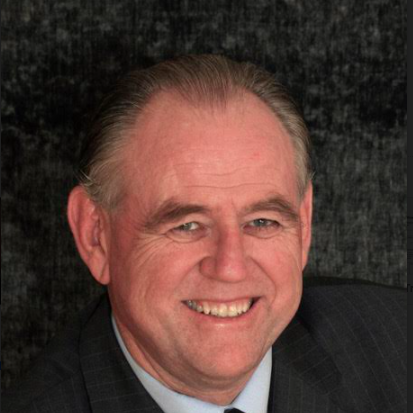
Carl Nettleton is an acclaimed award-winning writer, speaker and analyst. He heads Nettleton Strategies, a public policy firm specializing in oceans, water, energy, climate, and U.S. Mexico border issues. Carl also founded OpenOceans Global, an NGO solving ocean crises by unifying and empowering global communities. Carl serves on the national and California advisory councils for Environmental Entrepreneurs (E2), a national, nonpartisan group of business owners, investors and others who advocate for policies that are good for the economy and good for the environment. He is co-chair of the San Diego Water Conservation Action Committee (CAC) and a member of the San Diego Regional Chamber of Commerce, Lambda Alpha, South County Economic Development Council, Otay Mesa Chamber of Commerce and U.S.-Mexico Border Philanthropy Partnership.



